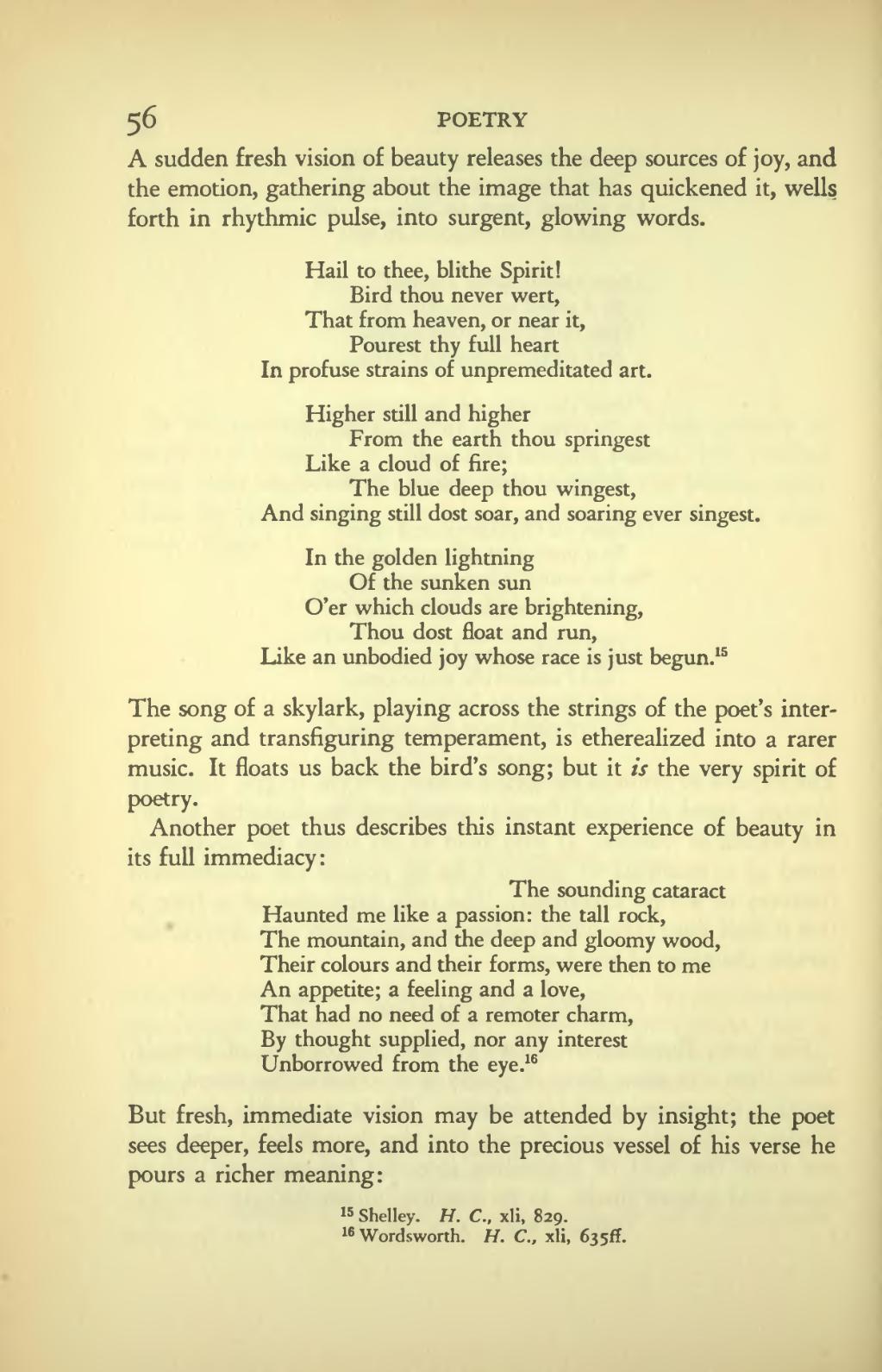A sudden fresh vision of beauty releases the deep sources of joy, and the emotion, gathering about the image that has quickened it, wells forth in rhythmic pulse, into surgent, glowing words.
Hail to thee, blithe Spirit!
Bird thou never wert,
That from heaven, or near it,
Pourest thy full heart
In profuse strains of unpremeditated art.
Higher still and higher
From the earth thou springest
Like a cloud of fire;
The blue deep thou wingest,
And singing still dost soar, and soaring ever singest.
In the golden lightning
Of the sunken sun
O'er which clouds are brightening,
Thou dost float and run,
Like an unbodied joy whose race is just begun.[1]
The song of a skylark, playing across the strings of the poet's interpreting and transfiguring temperament, is etherealized into a rarer music. It floats us back the bird's song; but it is the very spirit of poetry.
Another poet thus describes this instant experience of beauty in its full immediacy:
The sounding cataract
Haunted me like a passion: the tall rock,
The mountain, and the deep and gloomy wood,
Their colours and their forms, were then to me
An appetite; a feeling and a love,
That had no need of a remoter charm,
By thought supplied, nor any interest
Unborrowed from the eye.[2]
But fresh, immediate vision may be attended by insight; the poet sees deeper, feels more, and into the precious vessel of his verse he pours a richer meaning:
